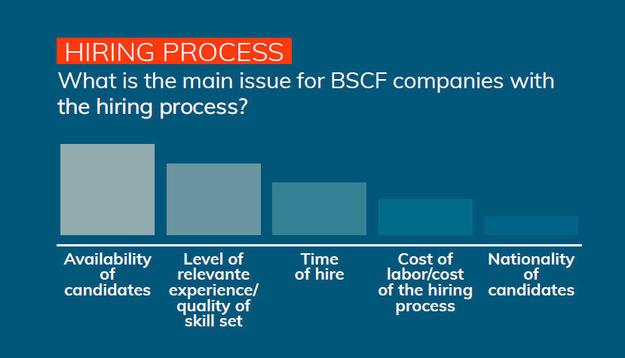This text was published as part of the special supplement on Business service centres, prepared in cooperation with AmCham Slovakia BSCF.
An employer-friendly labour code and low labour costs made Slovakia attractive for multinational companies to set up business service centres (BSCs) here in the previous two decades.
Things have gradually been changing, however. Labour legislation has been amended numerous times and, despite some improvements, companies complain about the increased number of proposals submitted directly by MPs, the processes of which avoid a broader discussion. At the same time, several measures, including those not linked to the Labour Code, increase labour costs.
“Despite all the problems we’re currently facing, nobody has said that they would like to end their business in Slovakia,” said Ronald Blaško, executive director of the American Chamber of Commerce (AmCham) in Slovakia, at the early October conference organised by the Business Service Center Forum (BSCF) and AmCham.
To secure further growth of the sector and maintain capacities in times of crisis, however, flexible labour legislation is needed, according to BSC representatives. Together with the employers’ representatives, they are calling for changes that would reflect current trends in the market.
“Otherwise, Slovakia risks not being interesting for BSCs [any more], which we can’t afford in good economic times, let alone bad times,” said Gabriel Galgóci, BSCF’s chair.
Flexible Labour Code necessary
In recent years, BSCF has intensively lobbied with the government. As a result, they came up with a governmental concept to support the sector, the register of BSCs running under the Economy Ministry, a shorter waiting time at the Foreigners’ Police, and rules for providing state aid to companies situated in Slovakia’s various regions, according to Galgóci.

“As a result, big centres not only fill office spaces in Bratislava, but expand to other regions,” Galgóci added.
Apart from Košice, where several BSCs are already operating, centres have opened in other towns such as Nitra, Žilina, Prešov, Komárno, Banská Bystrica, Nové Zámky, and Považská Bystrica.
Other changes concern the list of scarce professions, i.e. the list of professions with a lack of qualified workers in the regions with an unemployment rate below 5 percent, as published by the Central Office of Labour, Social Affairs and Family (ÚPSVaR). BSCs enjoy special conditions: they do not need to first report a vacant position to the labour office and then wait for a certain period of time to start seeking a worker from non-EU countries, but can immediately start their search abroad.
There is still a five-day waiting period to check the request, but this should change too, as soon as the new system to connect various databases is launched, said Marián Valentovič, head of ÚPSVaR.



 Changes are still needed, employers and BSC representatives agree. (source: TASR)
Changes are still needed, employers and BSC representatives agree. (source: TASR)
 (source: AmCham)
(source: AmCham)
 (source: BSCF 2019 Survey)
(source: BSCF 2019 Survey)